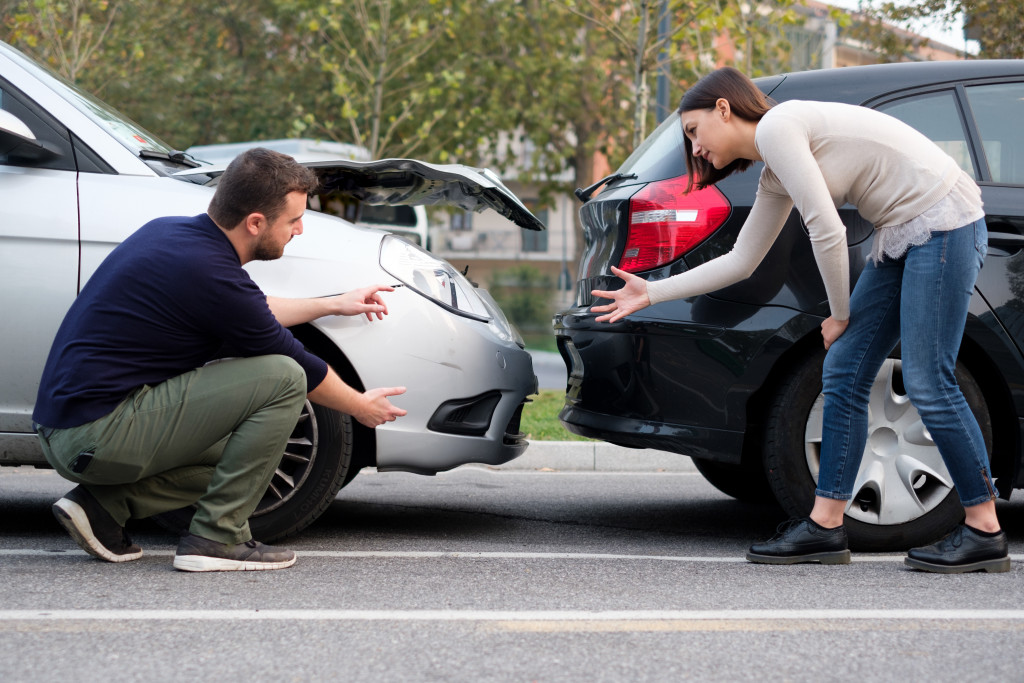Car accidents are bound to happen. No matter how careful a driver you are, a slick road or a careless driver is bound to put you in danger at some point in your driving life. The more time you spend on the road, the more likely this is to happen. No one likes to think about this, but accepting that such a situation can happen might be what helps you feel prepared in the event of an accident.
Suffering from a car accident can be very shocking and traumatic. You’ll also have to handle having yourself checked for any underlying injuries, losing money for your therapy, and asking insurance companies to cover the costs you incurred on this incident. For the last one, you’ll need to get a car crash attorney to present your case in court so you can receive what’s due to you.
Take the time to familiarize yourself with how to handle yourself at the scene of a car crash. If nothing else, it will make claiming insurance less of a headache for you. After all, the last thing you need after an accident is to get into a dispute with your insurance provider.
Prioritize Safety
Forget worrying about the condition of the car, and focus on the people involved. Are you moving well? Can you feel all your limbs?
Get out of the car and check on any other people involved. Are they moving? Is anyone unconscious?
Under any circumstances, do not leave the scene of the accident. Whether you or the other party caused the accident, you need to remain at the scene. Leaving the site of an accident looks very suspicious to the authorities, and your insurance is unlikely to cover repairs without a proper police report.
Deploy Your Hazard Gear
As long as everyone involved is in reasonably good condition, you can begin clearing the road. Move your vehicle to the side of the road, turn on your hazard lights, and get out your hazard gear. This will clear the road for other cars and facilitate the emergency support services to reach you sooner.
If you do not currently have hazard gear, it might be a good idea to get some immediately. It is one of those things where it is better to have and not need than to need and not have.
Flares and reflective emergency warning triangles are the very minimum hazard gear you should have at all times.
Do Not Trust Your Judgment
If you have been blindsided and feel shell-shocked, there is a chance that the accident might have impaired your thinking. In a bad crash where you cannot be sure if you are physically okay or not, it is best to stay in the car and wait. If other people see how badly injured you are, they might move you carefully. Allow them to do so and try not to panic.
If you’re involved in a horrible crash and are injured to the point that you can see that you are hurt, it is best to leave your vehicle, so emergency services can see the scene. It will feel scary, but try to take deep breaths and do not move around at all or too much without someone guiding you.
Call the Police
It does not matter what anyone says about the situation; you need to call the police. The other driver might demand a sum of money for compensation, offer you money, and even try to pressure you.
Whatever the situation and type of accident, you must call the police and report it. If it is minor enough, the police might not physically respond but take a statement over the phone. Insist that the authorities get your account and request that they give you the address to collect a copy. This is integral in establishing your safety and reliability in the event of a dispute, lawsuit, or insurance investigation.
Collect Their Information

If you can move around and communicate clearly, you must ask for the other parties’ information. Write down or record it onto your smartphone so you can be sure it is accurate. Collect their full name, phone number, driver’s license number, and insurance information.
If the person seems cagey or does not want to give clear information, then use your phone to take photos of their car, the license plate number, and a photo of them. They may not like it, but your security relies on your lawyer or the insurance to contact them at a later date.
Do Not Be Intimidated
You do not need to give out your social security number, the limits or coverage of your auto insurance policy, or your address. The police can collect your address from you directly, the insurance information is between you and your provider, and your social security number is none of anyone’s business.
It may be a tactic to intimidate you and make you take responsibility for the accident. Get in your car and avoid talking to the other party, especially if they are agitated. Even if they are calm but keep trying to make you agree that they are not responsible for the situation due to a reason, do not agree with them. They may use this agreement against you in the event of a dispute or lawsuit.
Being involved in a car accident is a nerve-racking experience no one wants to encounter in their lifetimes. However, by taking the precautions mentioned in this article, you have a better chance of getting a decision in your favor.







